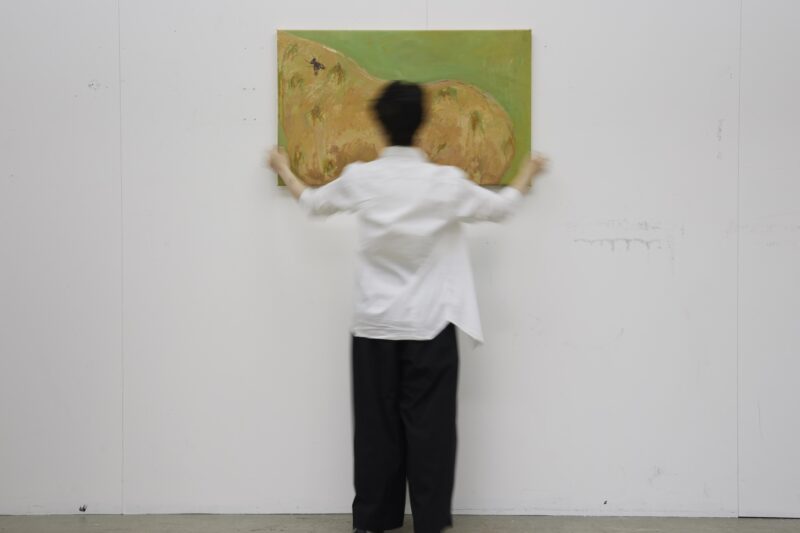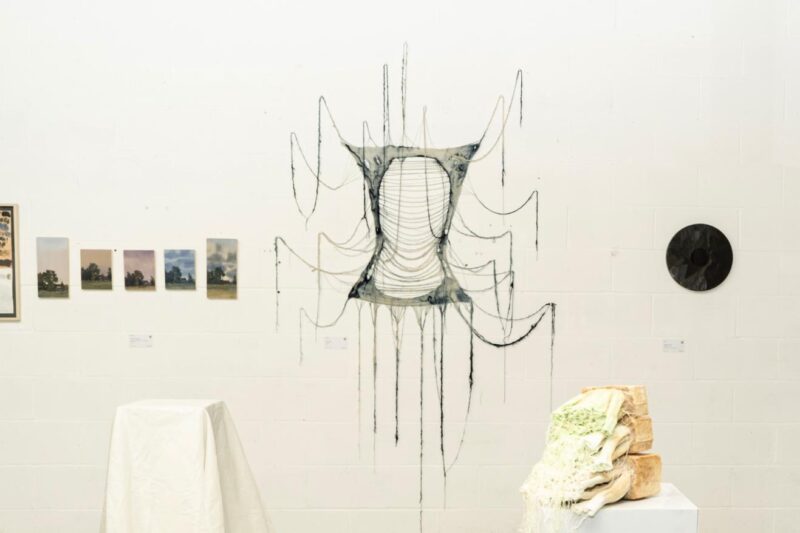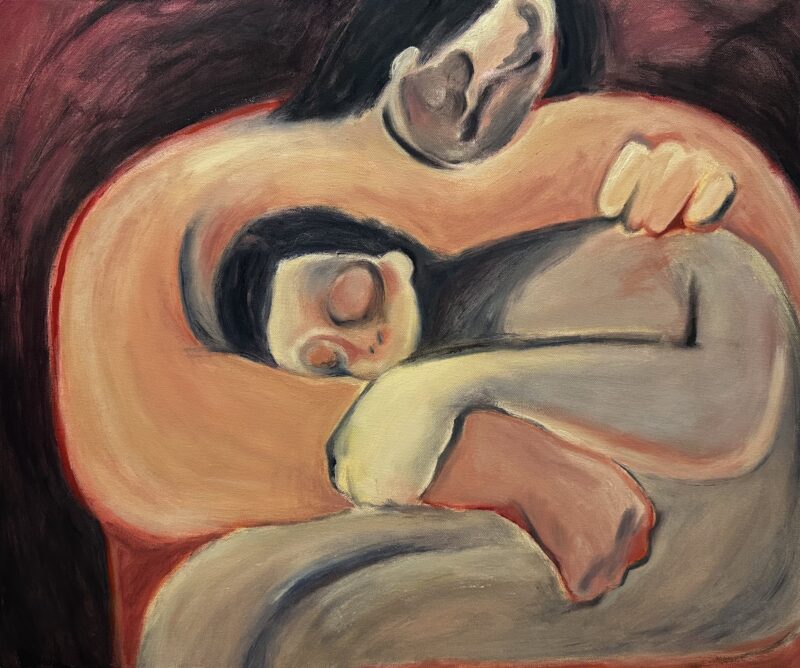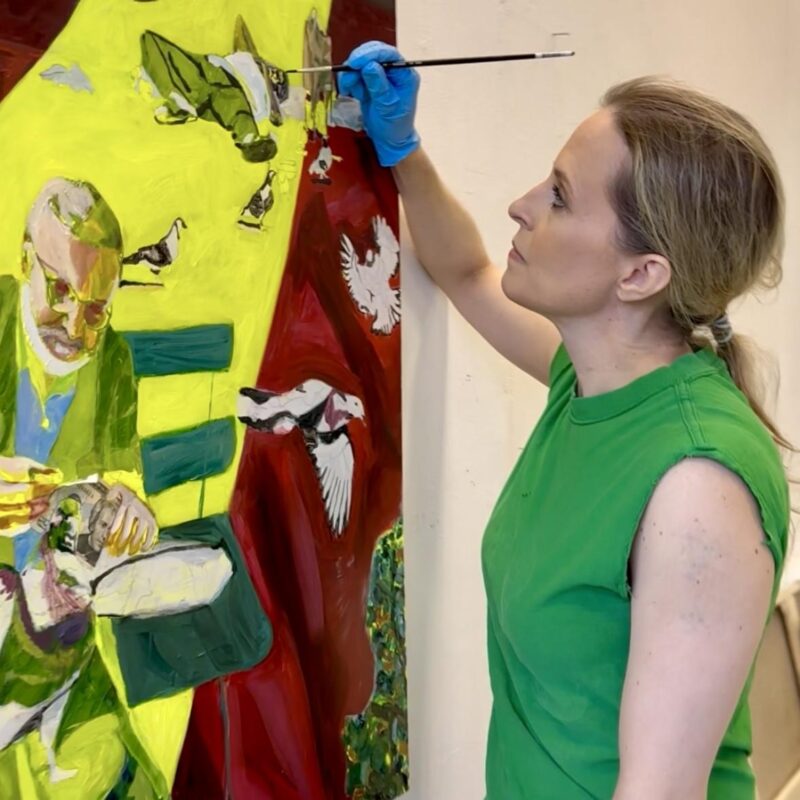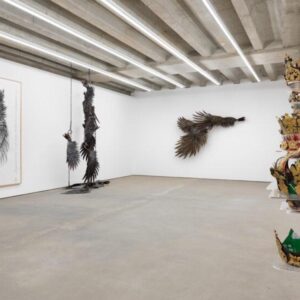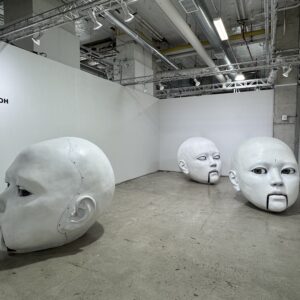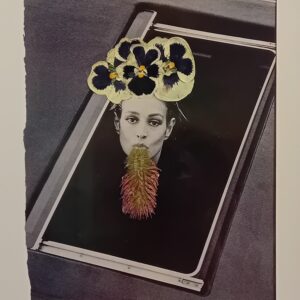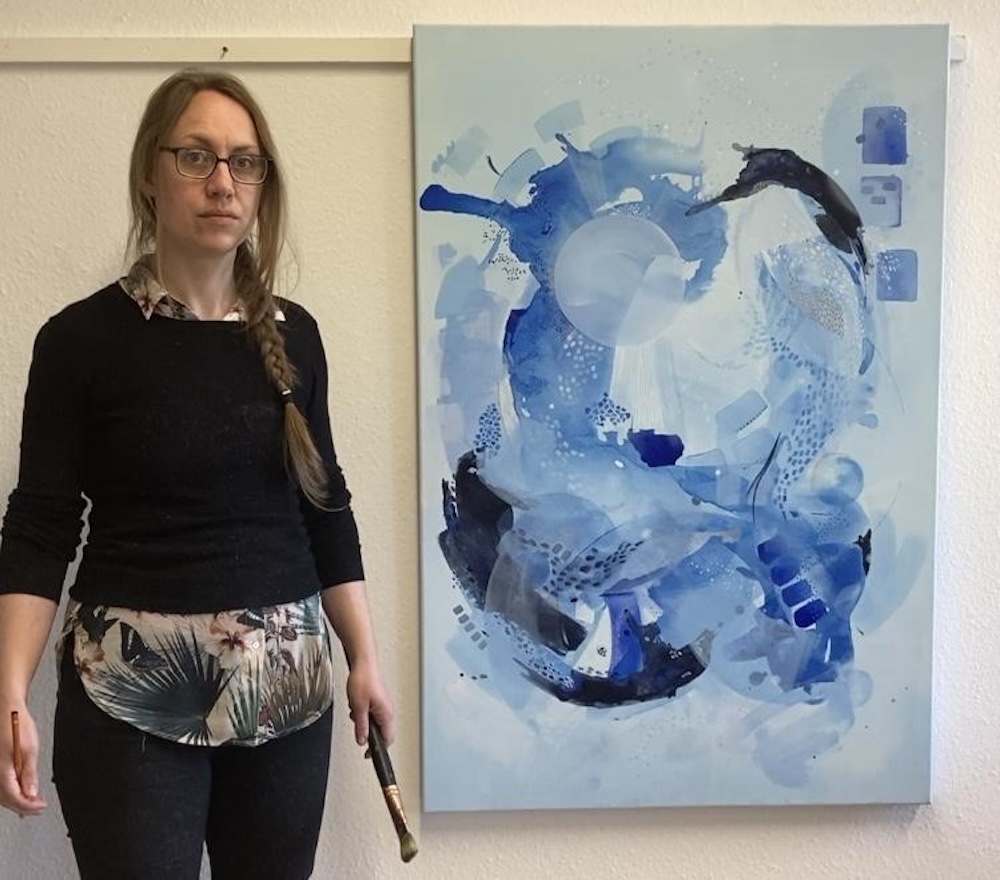
There’s rightly been a rewriting of art history to include many female painters who have been largely ignored in the past and Greek myths have been revisited in novels such as Circe to reframe previously demonised women. Is it time we revisited the women written about in religious texts? It’s part of what painter Emily Traynor is trying to redress through her abstract paintings that look back at women in the Bible and how they have often been sidelined by history.
After all, how many readers can remember that Moses parted the Red Sea but not his mother’s name? She was called Yocheved, the title of one of Emily’s paintings, and as well as saving the baby Moses from the purge of Hebrew children by placing him in a reed basket, she was a midwife who saved countless other children too, before convincing the Pharoah’s daughter to make herself the wet nurse of her own child. She is a woman who took great risks and had abiding courage, and yet very few people know her name.
Similarly, Emily’s work ‘Redeemed’ is inspired by the story of Mary Magdalene who is redeemed by Christ and is often portrayed as a prostitute. Yet there’s no evidence that she was ever a prostitute and Christian stories overlook how she was a woman who had to fend for herself with no family while probably suffering from mental health problems.
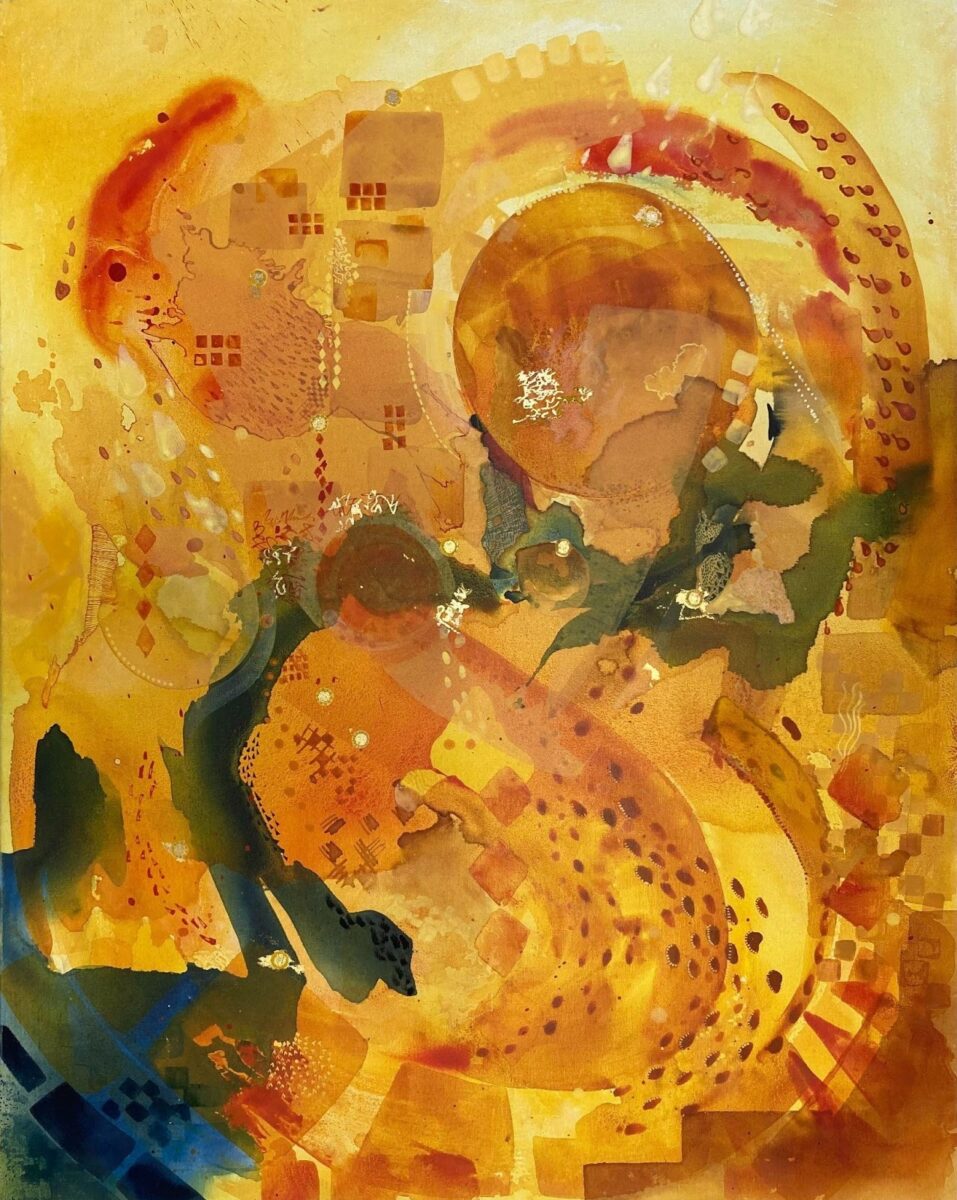
It’s not just Biblical stories that Emily draws from as she looks back at women depicted in early human history such as the famous Lion Man of Stadel, where historians are now wondering whether it may be a lioness instead – after all it doesn’t have a mane.
This look back at historical women draws from the artist’s own experience of motherhood through poverty, people trying to convince her to have abortions and post-natal depression. Like the women she draws inspiration from, she sees courage in all mothers but feels we live in a society that doesn’t support mothers as much as it should. She’s spoken to other mothers who have had to make difficult decisions from abortions to letting their husbands have children with other women to ‘gift them children’ as in the story of Sarah, the wife of Abraham, told through Emily’s painting ‘Promise Keeper’. These traumatic experiences feed into her works and Emily feels these societal structures also hamper men who want to be loving and caring parents but live in a society that suggests they should be more distant, or that their rights as a parent are not equal to a mother’s.
Emily’s abstract paintings start with big broad sweeps of colour before a session of more detailed work. However, it’s important to her that the paint remains translucent so every layer contributes to the work. As she says it’s like life where everything we do, the good and the bad, contributes to who we are and how we behave. The multiple layers speak to a sense of time and how our stories are always unique to the many layers of context and history that inform who we are and the decisions we make. Emily often experiences the paintings like music, with many layers of sound and rhythm.
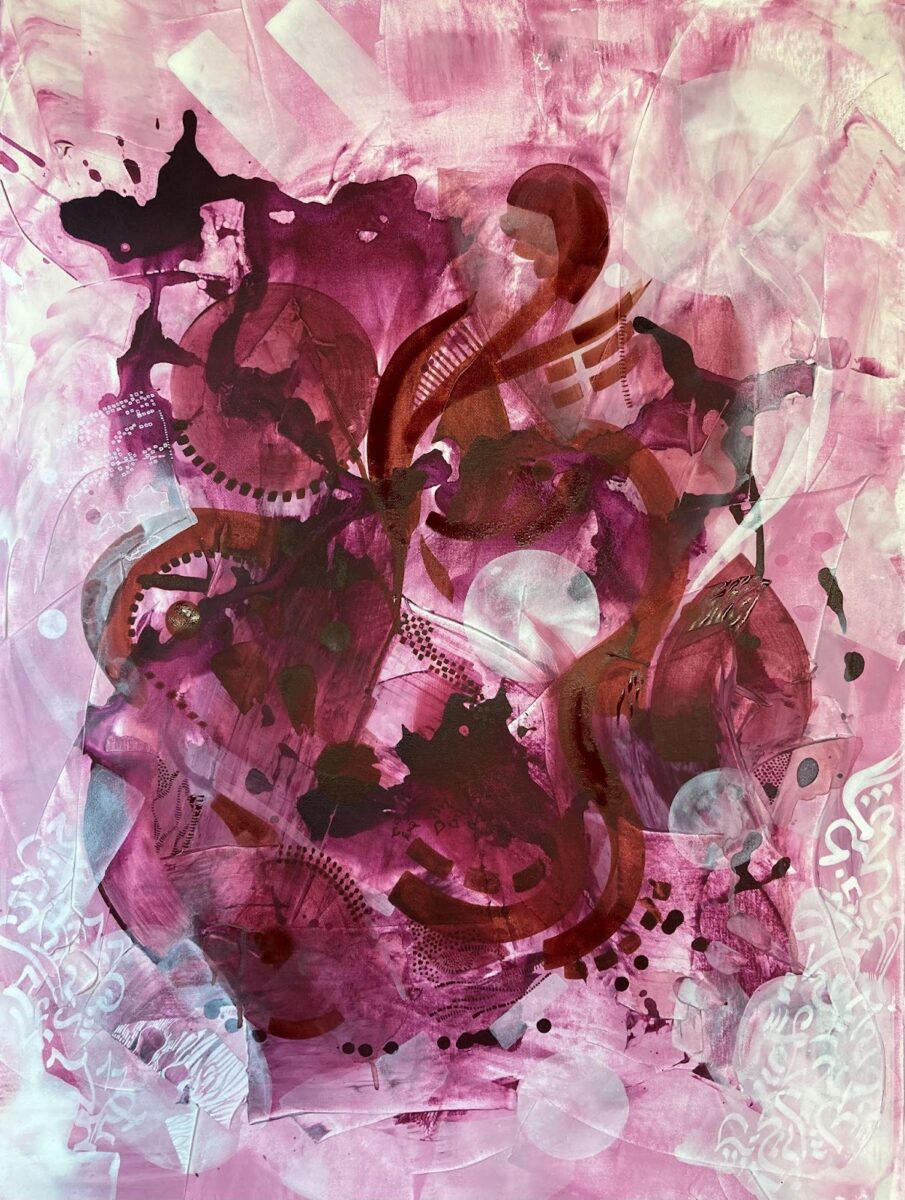
Other techniques work their way into her paintings including gold, she learned to gild as she was fascinated by illuminated manuscripts and Byzantine art given her Catholic upbringing. She also references prehistoric mark-making as her university thesis focused on Upper Palaeolithic art, looking at how abstract art and a sense of the sacred has a history that goes back to the dawn of humanity.
In a world where women today are often told that equality means they can have it all, but never mentions the cost, Emily Traynor’s paintings look back on history and highlight that while women in today’s world have it a lot better, many of the same issues women in history have faced still sadly persist today. While these paintings draw from dark experiences, Emily Traynor wants to use her works to highlight what it’s like to be a woman and a mother, but also that there is support and hope for those who are struggling with these roles.
More details on Emily Traynor may be found on her website and Instagram. She has released her book, ‘How to Abstract with Meaning’, a semi-autobiographical, semi-instructional an often moving look at ways to instil and decipher meaning in abstract art. It’s available online and a short version is available for free.
